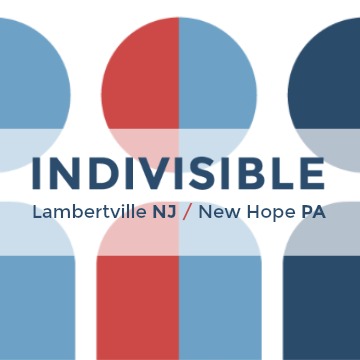The following speech was given by Niya Maniez-Wassegiig, a South Hunterdon High School senior, at the recent Climate Strike held in Lambertville. We offer this with gratitude to both our next-generation of leaders and all Indigenous people as protectors of the earth.
Aaniin, Hello,
I would like to thank everyone who came to the climate strike today. I am Niya Maniez-Wassegiig and I am a tribal member of Wikwemikong First Nation in Canada. I am a senior in high school and a resident of Lambertville. I am an Anishinaabekwe, or indigenous woman, I am a social activist and an artist.
Climate change affects indigenous people and marginalized communities disproportionately. Indigenous people are only 5% of the world’s population, and yet, our communities are at the forefront of protecting the earth, advocating against fossil fuels, and recognizing water as sacred. We “protect nearly 80% of biodiversity” according to the U.N. But protecting the earth, our mother, is not the responsibility of native people. It is everyone’s responsibility.
Some indigenous communities are deeply connected to the earth and rely directly on and contribute positively to particular ecosystems which are threatened by climate change. Not only is indigenous land often forcibly taken and used for fossil fuels and other natural resources, but the land to which indigenous peoples have been forcibly relocated is often the least fertile and the least livable.
The climate crisis exacerbates this problem because most indigenous communities do not have the resources or flexibility to respond. There are so many reservations that do not even have clean drinking water. According to the Southern University Law Center’s 2019 study, nearly 50% of tribal homes lack clean water, or even access to water, in the U.S. Meanwhile, the natural resources which are available on the land are funneled away for use by non-indigenous people. At the same time, fossil fuel companies seek out these areas to take advantage of because these big businesses know that no one will care or call media attention to what is happening to marginalized communities.
But my people are rising up, we are making change. When people hear the word “pipeline” they often think back to the the Dakota Access Pipeline and Standing Rock. Standing Rock began when a youth group set up a small prayer camp on their reservation. You may have also heard news of the conflict on Mauna Kea, where indigenous people are blocking roads to protect the sacred mountain.
These examples have gained a lot of news coverage, but these are not the only examples of indigenous communities rising up to protect sacred earth from big businesses. Oil and natural gas companies continue to undermine these underprivileged communities, aiming to make money instead of aiming to avoid a climate crisis. In order to solve this crisis, it is important to remember that equity is key.
Our own community here in Lambertville has been confronted with similar issues regarding a pipeline. It has been a long road that has worried many members of our community. Here in Lambertville, we are lucky to have wealth on our side, along with many educated people that are embedded in our systems of government and business that are helping to put a stop to an unneeded and unwanted pipeline. Imagine all the communities within North America that do not have the same resources as our community. In those communities, the pipeline would already be in the ground.
It scares me when I see that so few people are concerned about the climate crisis. People older than me frequently have little to no concern, because it is not them who will have to live in this world after it has become uninhabitable. So then why is it that people my age and younger also do not care? It is because they see no reason to try, they believe in climate change and what will happen, but we have become so numb to it that it no longer seems to matter.
We can allow this possible future to lull us into depression or complacency, or we can choose to allow this crisis to fuel our progress to problem solve creatively and in collaboration with each other. It is important for us to be together here, on the streets, but what is more important is for us to take action when we leave. Let this gathering be a catalyst for us to make change now. When we leave this strike today, what we will organize to do in our community to make change?
Oren Lyons, Chief of the Onondaga Nation, writes: “We are looking ahead, as is one of the first mandates given us as chiefs, to make sure and to make every decision that we make relate to the welfare and well-being of the seventh generation to come. … What about the seventh generation? Where are you taking them? What will they have?”
In closing, I would like to share with you the words of Autumn Peltier, a young woman from the Wikwemikong reservation. At just the age of fourteen, Autumn was recently named chief water commissioner for Anishinabek Nation. This is what she has to say:
“You are someone’s seventh generation, you are the change, you are someone’s hope, you are someone’s prayer for change.”
Migwetch, thank you.
Sources:
https://www.un.org/development/desa/indigenouspeoples/climate-change.html
https://racism.org/articles/basic-needs/207-food-and-water/3070-the-reservation-water-crisis



